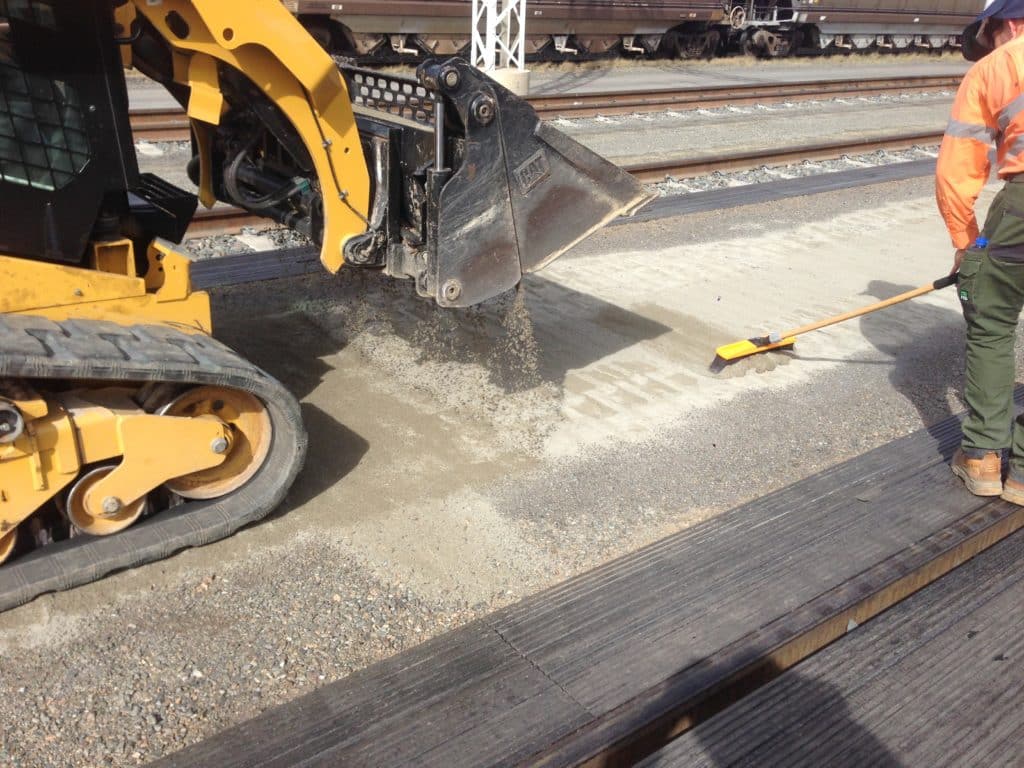
| Project Name | Polymer stabilised and slurry sealed linear rail yard pavement construction |
| Location | Gladstone, Queensland, Australia |
| Service | GRT Polymer Stabilisation and Slurry Seal |
| Products | GRT9000, GRT: Slurry Seal |
| Duration | March-April 2016 |
| Status | Completed |
Just as railways and trains need regular maintenance, the maintenance yard that performs these services also requires similar preservation and upkeep. Unlike typical yards that are square or rectangular in shape, the “Callemondah” maintenance yard in Gladstone is a longitudinal arrangement located between multiple railway tracks. In fact, it is more like a heavily trafficked service road.
The client (Aurizon) was looking at options to create a durable, bound, cost-effective pavement between railway tracks that could handle heavy, specialised forklifts used to lift up the rail cars in-situ, as well as being waterproof and dust free. Traditional options examined by the designers were deep lift asphalt or concrete pavements. However, these traditional technologies are also expensive options. So they reached out to GRT for an alternative approach.
Some of the challenges the site itself proposed were:
GRT’s engineering team undertook 2 site visits to ascertain the existing conditions and also source potential unbound pavement material in the local area. The team also met with the designed to understand their pavement performance requirements, so they could develop a GRT polymer stabilised and sealed option that met or exceeded this requirement.
This stabilised pavement material was mixed offsite using the pugmill at the quarry where we sourced the material. The pavement material was a Type 2, Subtype 2.3, stabilised with GRT9000 at 1.5%. Design criteria were to achieve a UCS of 4 or greater, which was achieved and verified during construction by independent soil testers.
Surfacing: GRT recommended the use of its unique polymer process, GRT: Polymer Slurry Seal. This utilises our specialised stabilisation polymers to bind a 5-10mm layer of crusher dust/sand to provide a hard, and durable surfacing layer. This is similar to a micro-surfacing concept. This provides a tough, waterproof surfacing layer that protects the pavement from water ingress and traffic wear and tear.
The GRT9000 stabilised pavement and GRT: Polymer Slurry Seal treated pavement has delivered high performing results that were expected from the product:
Are environmental regulations, health and safety concerns or potential profit loss a concern right now?
Contact Us Now